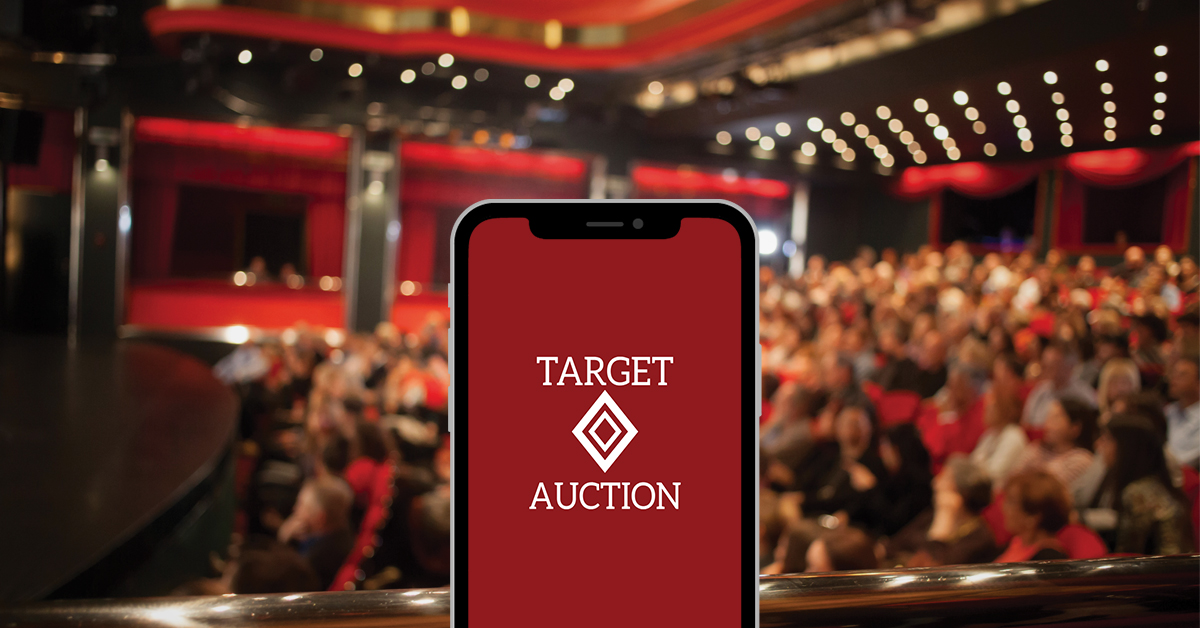How Auctions Work

Author: National Auctioneers Association
How do real estate auctions differ from traditional home sales? It’s not as different as you might think.
We know what you might be thinking about real estate auctions … aren’t those just foreclosures and dilapidated, distressed houses? How do I even bid on a house up for auction? What does the buying process look like? There are numerous misconceptions about why a property would be sold at auction and how you, as a buyer, can participate. Let’s try to clear some of those up.
Why do properties go up for auction?
Often when people think of real estate auctions the first assumption may be a situation of financial distress. Yes, some homes that go to auction are a result of a foreclosure or bankruptcy. Auctions are a timely method for banks or courts to convert real estate into cash. Foreclosure auctions do happen and typically have the most restrictive terms where buyers must pay cash and do not have an opportunity to view the property or have it inspected. While these auctions are a part of our industry, they are definitely misleading the public into believing this is the only reason real estate sells at auction. In fact, some real estate websites refer to all auctions as foreclosure or pre-foreclosure, which is far from accurate.
However, the overwhelming majority of property sold at auction has no financial distress and is direct for sellers who have chosen the auction method. Everyday normal sellers looking to sell their home or property are choosing auction as their first choice. Sellers choose an auction for a variety of reasons. An auction offers a timely transaction with a fair and level playing field for all buyers to compete and participate in determining true market value. Sellers are opting for a transparent process that doesn’t involve lengthy negotiations and contract contingencies.
For many years an auction has been a preferred method for selling agricultural and rural properties, as well as estates and senior transitions. Across the nation, more and more pieces of residential, luxury, commercial, farm and ranch, and investment property is trading at auction.
Top Reasons Buyers like Purchasing through an Auction
Transparency – When buying at auction you know exactly where you stand. You’re either the top bidder or you are not. In markets where sellers are experiencing multiple offers, the buyers are somewhat left in the dark. On the traditional market when you make an offer on a property you don’t know how you compare to the other offers on the table, but at auction, it is very clear if you are in the lead.
Fair and level playing field – All buyers are participating under the exact same terms and conditions. No buyer has an advantage over another based upon if they are getting financing, asking for inspections, home warranty, early possession, or all the other contingencies we see. Auction eliminates the closed-door negotiations that can leave some buyers at a disadvantage.
Stay in control –Buyers get to decide when and at what level they participate in an auction. You’re not blindly participating against other offers. You control whether you are the winning bidder or not.
True price discovery – In real estate we all hear the term “market value,” but how do you determine what true market value is? Is it what the real estate agent says? An appraiser? Tax assessor? How much the property next door sold for? Those are all professional estimates and tools to give an approximate value, but true market value is what the public is willing to pay for a property. When marketed effectively and open to all members of the public, an auction is a very true form of price discovery. Buyers can feel comfortable they didn’t overpay for a property when they know there were others in the market just one bid away.
Get Familiar with the Process
Auctioneers provide terms and conditions for participating in an auction. The terms and conditions may sound as if most buyers couldn’t participate, but understanding them will likely make you feel more comfortable. Here are some of the common terms:
“CASH” – Auction terms may include that there will not be a contingency for financing, or in other words state that it is a “cash” transaction. This may come across as a barrier that buyers feel will rule them out of the process. Not necessarily! This often just means that the sales contract will not be contingent upon the buyer obtaining financing, but it doesn’t preclude them from doing so. If you need to get a loan, go prepare with your bank ahead of time and determine what your borrowing capacity is before participating in an auction. For some companies, about 60 percent of buyers that purchase at auction do obtain some sort of financing.
“AS-IS” – This is another common term that sounds scary. Again, this just means there will not be a contingency to negotiate repairs, but likely you are welcome to preview the property or have a full home inspection if you desire. A home selling in its “as-is” or present condition doesn’t mean it’s in bad condition. Some of the most immaculate and well-maintained homes are sold “as-is.” At most, real estate auction buyers have the opportunity to schedule a showing and complete inspections prior to the auction. Buyers are encouraged to thoroughly inspect the property prior to the auction and adjust their bidding accordingly for any defects of deficiencies they may have found. Often sellers provide disclosure reports, just like they do in traditional listing transactions. Sellers still have an obligation to share any known condition issues with the buyers. Sellers may just not want to go through the additional negotiations and repair requests that are a part of the traditional sales method.
Auctioneers want buyers to be comfortable with the property and have a chance to fully look it over ahead of time to make a good purchasing decision.
“30-DAY CLOSING” – There will be a term that references the amount of time a buyer has to close on a property. Often 30 or 45 days is allowed from the time of executing the sales contract to actually having the final closing. This timeframe does allow for buyers to financially prepare for closing, whether that is moving around funds or securing a loan. This timeframe is important to communicate to a lender to make sure they can accommodate a loan. Sellers like the certainty that comes with knowing an auction date and a closing date; it is helpful when making plans for their future.
“NON-REFUNDABLE EARNEST MONEY” – Earnest money is the money you put up in earnest, or in good faith, that you will perform on the transaction. This is often non-refundable at auction. Your earnest money is deposited at the time of contracting and goes toward your final purchase price at the time of closing; if you do not perform on the contract, the earnest money would be forfeited. This is all the more reason you should be prepared financially and comfortable with the condition of the property before buying at auction. Earnest money amounts fluctuate. Some auctioneers use a percentage of the purchase price and others use a fixed amount. Make sure and consult the marketing materials to be prepared for the amount you will need to put down.
Other than the terms listed above, most other terms of buying real estate at auction are the same as buying on the traditional market. Most auction properties come with clean and clear titles, with title insurance and title company expenses shared between buyer and seller. Real estate taxes are typically prorated to the day of closing so buyers and sellers are paying their appropriate share of expenses.
Another big misconception is that a buyer can’t use their real estate agent to represent them. Most auction companies offer cooperation and compensation to real estate agents. This will also be included in the terms and conditions. Most companies honor and respect your relationship with your agent and are happy to include them in the transaction.
Types of Auctions
- Absolute: This means the property is selling, regardless of price, to the highest bidder with no limiting conditions. Some auctioneers use the term “No minimum/No reserve” to communicate this as well.
- Reserve: This means the seller has the right to put a “reserve” or bottom dollar on the amount the property will sell for. Some auctioneers will use the language “subject to seller confirmation,” which is communicating the same thing: sellers will have the right to accept or reject the final bid.
- Live auction: If you’re looking for fast-talking excitement, this is where you’ll find it. This is a true live auction with an auctioneer selling the real estate at a specified place and time.
- Online only auction: In this type of auction all bidding is conducted online. There will not be a live auction, only the ability to register and place your bids through the auction website. There will be a specified timeframe that bidding is open and a bidding closing date and time provided.
- Simulcast or live stream: This is actually a combination of live and online. It is marketed as a “Live auction with online bidding,” meaning you can participate either way. There will be a live auction conducted that you, as a buyer, could attend or you could watch, listen and bid from your computer or mobile device.
- Sealed bid: Similar to online, this is one where there is not actually a live auction, but a specified timeframe for you to submit your bid to the auction company. This differs from the online, because typically the bids are not publicly viewable, but “sealed” until the auction is completed.
Still, feel the same about auctions as you did before reading this article? Hopefully, you feel more informed and less uncertain, and we hope to see you at an auction soon! If you have further questions, reach out to a professional auctioneer today!
Megan McCurdy Niedens, CAI, BAS, chief operating officer, and auctioneer for McCurdy Auction LLC, contributed to this article. Feel the same about auctions as you did before reading this article? Hopefully, you feel more informed and less uncertain, and we hope to see you at an auction soon!














